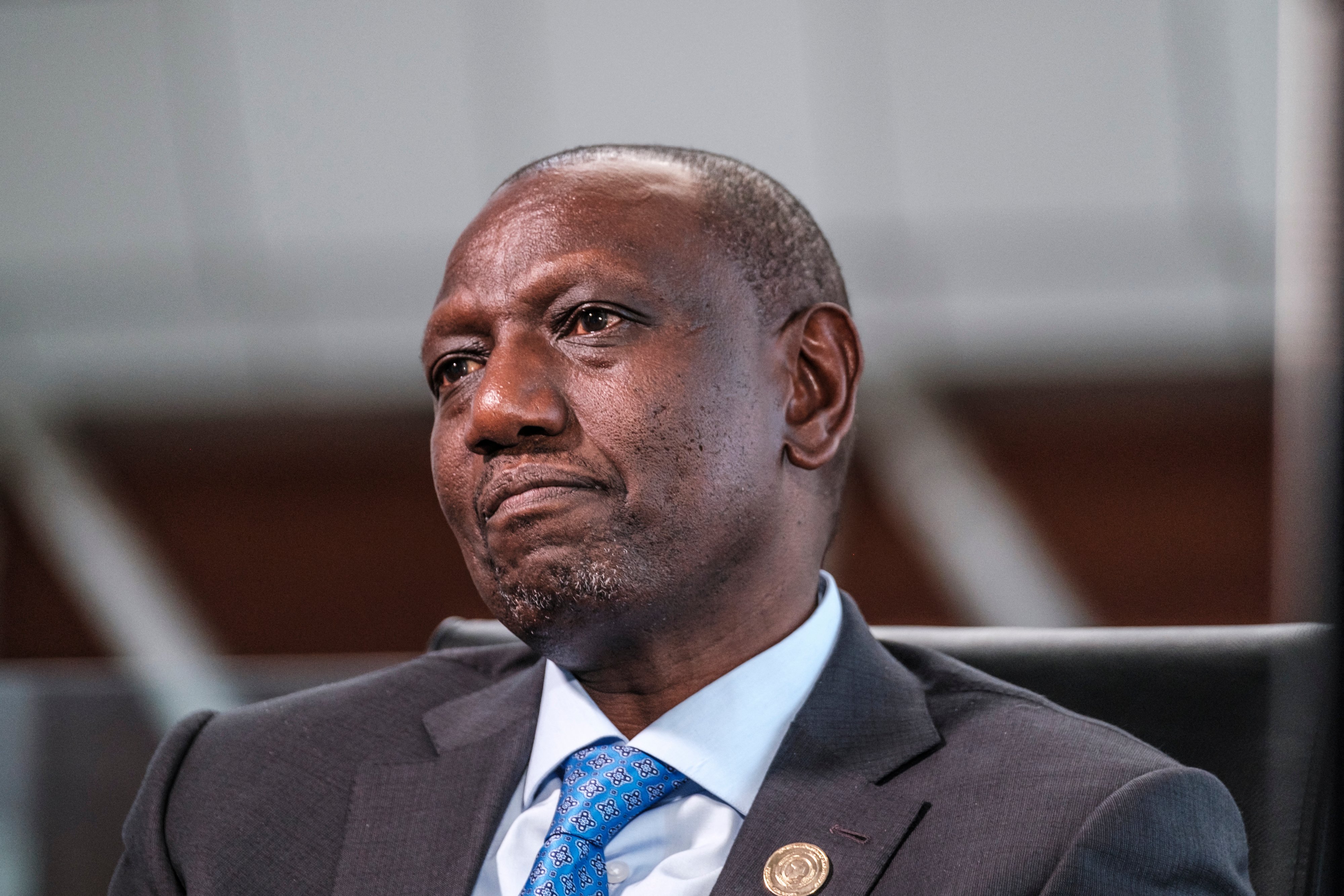The president of Kenya, William Ruto, has often enjoyed referring to himself as “the Hustler-in-Chief.” This is partly a dig at some of his major political opponents, who come from established political families – such as the opposition leader, Raila Odinga, who is son of Kenya’s first vice-president. The “Hustler” moniker also represents an attempt to embody Ruto’s self-declared entrepreneurial spirit.
Explaining the nickname to a journalist last year, Ruto said: “I am the Hustler-in-Chief. I have come very far, you know… I have come to accept that I may be the child of nobody, but we want to make this country a country of everybody.”
It is in this spirit that Kenya’s Financial Inclusion Fund – inevitably branded the “Hustler Fund” – was born. The fund meets a campaign pledge made by Ruto during the 2022 election to create a new economic order by reworking the country’s loan system. In Kenya, the majority of citizens pay for everyday purchases through digital loans, which tend to come with high interest rates. Partly because of this, according to Deloitte, nearly 60% of Kenyans are living in debt and are unable to pay off their loans.
A bold solution to debt problems
In his party manifesto, Ruto promised to address this by providing KSh50bn ($396m) per year to the Hustler Fund. The fund offers instant loans to Kenyan citizens upon request, aiming to provide cheaper access to credit, and to combat embedded credit-scoring issues that have often prevented poorer Kenyans from accessing cash.
The interest rate of Hustler Fund loans is 8% annually, calculated daily at a rate of 0.02%. According to Eric Jackson, co-founder of Nairobi-based fintech Hisa, “this is a big win in a country where some mobile loan providers were charging customers more than 100% in annual rates.”
Jackson tells African Business that the Hustler Fund has been highly successful in addressing one of the major issues affecting citizens’ financial health. “So far, its biggest success has been the number of customers that have enrolled,” Jackson says. “18.9m Kenyans enrolling within a three-month period is a huge success. By leveraging existing mobile money infrastructure, the government has managed to roll out a savings product faster than any fintech would. These users have managed to borrow KSh19bn, with KSh10.6bn of that having been repaid.”
Some, however, question whether the Hustler Fund goes far enough in addressing fundamental issues in the Kenyan economy. Edwin H Dande, the CEO of Cytonn Investments, an investment management firm based in Nairobi, believes that “the Hustler Fund is a good concept, because it addresses the issue of lack of access to credit” but is “not convinced that it will have a huge impact”.
Dande notes that the credit deficit in Kenya – defined as the gap between the amount of credit that business needs and the amount that is currently being provided – “is about Ksh8 trillion.”
“The credit provided to the private sector is currently about KSh4 trillion, which is about 33% of GDP. We need it to be about 100% of GDP or KSh12 trillion. This means there is an 8 trillion gap. You can’t address an 8 trillion problem with a 20bn solution,” Dande says.
Jackson similarly believes that, while the Hustler Fund works well at providing the poorest with access to much-needed cheap credit, the fund is too small in scale for Kenya’s SMEs to take full advantage of it.
“My main criticism is that the loan amounts, which start from KSh500, are too low to be considered as capital for any business,” Jackson argues, although he is encouraged by government plans to expand the scope of the fund.
“It is important to note that the government has already stated that, from March 2023, they will open up the fund to small businesses, savings, and credit cooperatives, with a limit of KSh2.5m. This is where the biggest disruption could happen.”
Is the fund sustainable?
However, on a more philosophical level, Jackson questions whether the best way to promote a thriving business environment is through top-down government handouts. “Shouldn’t the government create policies and let private organisations do business?”
Both Jackson and Dande are also concerned that the fund may not prove to be sustainable in the long term given the amount of debt the Kenyan government is racking up. In June last year, Ruto had to ask parliament to raise the country’s public debt ceiling to KSh10 trillion in order to meet his spending commitments.
The World Bank has warned there is a high risk of Kenya defaulting on its sovereign debt, with the most recent central bank data showing that the public debt now stands at over $73bn. External debt repayments, which are mainly priced in US dollars, have also become more expensive amid a weakening Kenyan Shilling and stronger dollar.
Jackson points out that “at current interest rates, it begs the question of just how sustainable it is in the long term for the government to keep lending, given that the Central Bank of Kenya Interbank Rate is at 6.30% and the Central Bank Rate is actually at 8.75%,” which is higher than the rate offered to consumers through the Hustler Fund.
Not only this, but Dande also believes that there is a high risk of default amongst many consumers. He notes that other similar government schemes such as the Uwezo Fund, which seeks to offer affordable credit to women, young people, and people with disabilities, “has not had much success, with default rates running between 40% and 60%.”
Default rates for the Hustler Fund are not yet available – although it has been reported that at least 800,000 Kenyans have fallen behind on their loan repayments. Dande guesses that “it is pretty ugly and that is why it is not being disclosed.”
A challenge for the Hustler-in-Chief
The Hustler Fund clearly plays an important role in disrupting the broken consumer credit market in Kenya, which has long been a drag on economic growth and a blight on citizens’ lives. However, there are serious questions over whether the fund can be the transformative force that the Kenyan economy needs.
First, the fund’s impact is limited by the fact it does little to address the needs of business, although this is something the government is seeking to address next month. While most Kenyans seem to agree that the Hustler Fund is a good concept in theory, there also remain major question marks as to whether the scheme is even affordable for a country that is already heavily indebted.
The self-proclaimed “Hustler-in-Chief” will have to pull off his biggest hustle yet if he is to deliver the radical change he has promised.
Want to continue reading? Subscribe today.
You've read all your free articles for this month! Subscribe now to enjoy full access to our content.
Digital Monthly
£8.00 / month
Receive full unlimited access to our articles, opinions, podcasts and more.
Digital Yearly
£70.00 / year
Our best value offer - save £26 and gain access to all of our digital content for an entire year!

 Sign in with Google
Sign in with Google 



